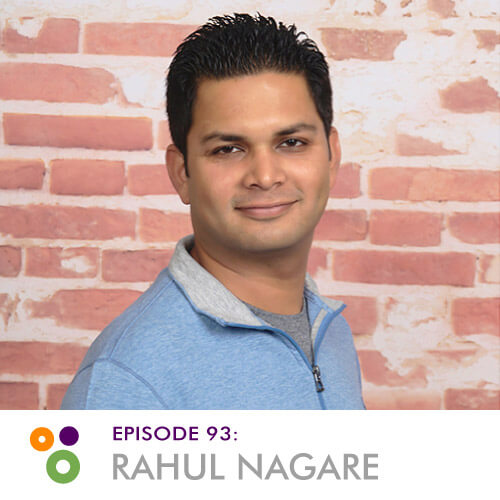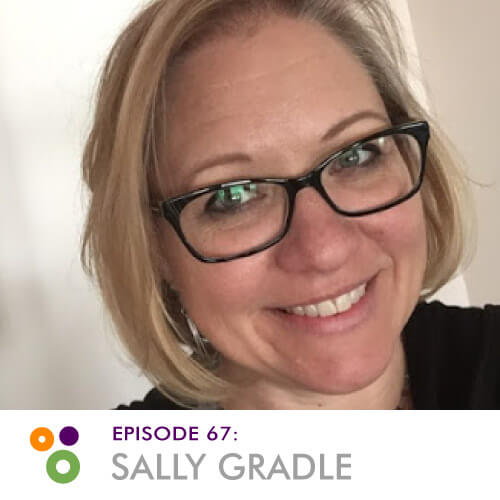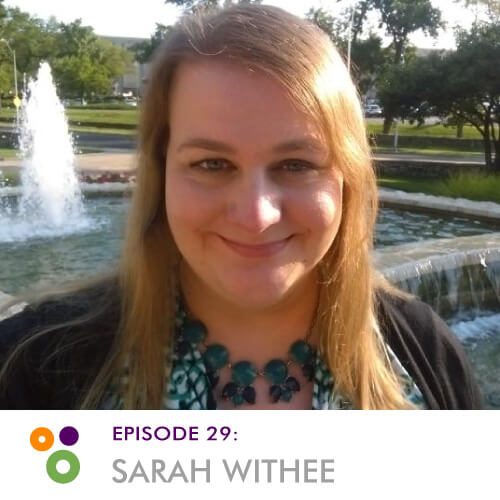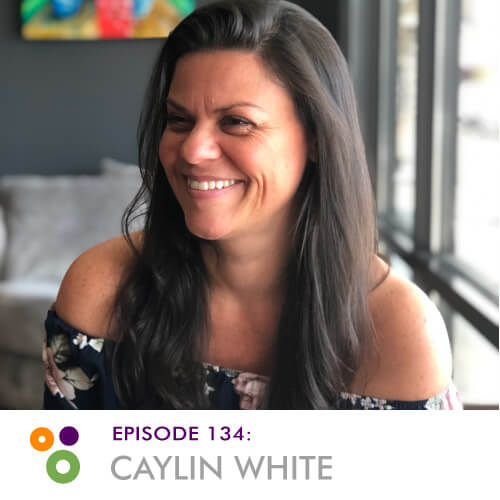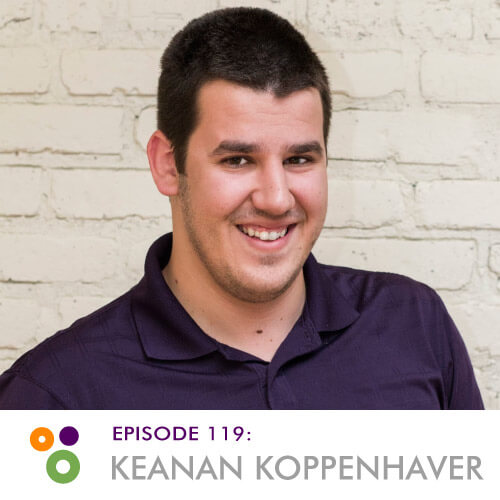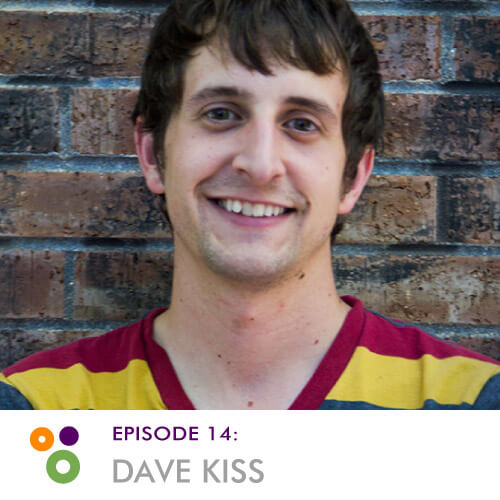Episode 135 – David Zimmerman

Podcast: Play in new window | Download
Subscribe: RSS
Introducing David Zimmerman
David has been working in SEO for about 12 years, five years on his own as Reliable Acorn. Over the past couple of years, he’s been speaking at WordCamps about SEO and client management.
Show Notes
Twitter | @reliableacorn
Website | Reliable Acorn
Webiste | Curious Ants
Preferred Pronouns | He/Him
Episode Transcript
Tara: This is Hallway Chats, where we meet people who use WordPress.
Liam: We ask questions and our guests share their stories, ideas, and perspectives.
Tara: And now the conversation begins. This is Episode 135. Welcome to Hallway Chats. I’m Tara Claeys.
Liam: And I’m Liam Dempsey. Today we’re joined by David Zimmerman. David has been working in SEO for about 12 years, five years on his own as Reliable Acorn. Over the past couple of years, he’s been speaking at WordCamps about SEO and client management. Under the current COVID-19 shutdown, he misses the friends he’s made in the hallway track. Welcome, David.
David: Hello. Nice to be with you two, today.
Tara: We are glad to have you in our virtual hallway. Thanks for joining us today, David. Can you tell us and our listeners a little bit more about yourself?
David: Yeah, I see. I live in Charlotte, North Carolina with my wife who is just really of about nine months now. It’s been a great time to get to know my wife in quarantine over the last few months. It’s kind of a new thing for us. And we’ve been having a good time doing it. She has been here working from home, getting used to me, who’ve been working from home for a long time now.
Tara: So you’re newly married, and then right after you got married you ended up in this work together? Did I understand that correctly?
David: Yeah. Sorry, that wasn’t very clear, was it? We got married a few months before the pandemic. So about March when she was working from home, she got to join me who have already been working from home for a long time. So it’s been a fun way to kind of get to know someone even closer.
Tara: Yeah. I know when you have a vacation where you stay at home you call it a staycation. What do you call a honeymoon when you’re stuck at home?
David: Yeah, exactly. Exactly.
Tara: Well, excellent. Tell us about how you’ve discovered WordPress. You say you have an SEO agency and SEO doesn’t always mean WordPress. So tell us a little bit about your connection with WordPress.
David: I’ve been kind of a half developer, half marketer for years, and then someone introduced me to the concept of SEO. It appealed to both my technical side and my content creative side. It was a kind of a weird culmination. As someone who came from that background, WordPress was a kind of a natural fit. It just was easy to use and had the flexibility where I could dink around with it. I don’t call myself a developer, I really don’t do that. But WordPress allowed me to have enough.
For instance, I eventually built my own little theme from scratch just to really familiarize myself with how WordPress worked. I learned a lot in the process. Now the theme is really super ugly because I am definitely not a designer. But it taught me how WordPress renders things. It taught me how to speak to designers and developers who are building WordPress websites, so I can give them the best technical SEO advice I can being that I understand how the platform works.
I took that and I started going and traveling around to different WordCamps around the southeastern United States and meeting friends, speaking on things that I was excited to speak about. Now I feel like I’m pretty involved in the community. I was on the organization team to organize WordCamps Charlotte this year. Was. So maybe next year.
Liam: Hopefully next year, right? Hopefully next year. David, I want to talk a little bit about your diving into that WordPress theme and making that. I’m a big fan of knowing a lot about the ancillary roles to mine. I’m in the design and marketing side, not the development and marketing. Very much in the design and marketing. But dabble enough in code not to write a theme that I would ever put on a public-facing website, but to your point to be able to talk to developers and to talk to clients where we could do this technically and that technically.
I know that is simpler than this other task I have no idea how to do either. But I know that that’s simpler than that is more complicated. I’m interested, when you were going to make this WordPress theme, was that just an educational idea? Or were you really thinking, “You know, maybe I’ll sell it” or “maybe I’ll design it up and use it on my own?” Where are you going with it?
David: Because I knew it would be ugly, I knew I wasn’t going to be able to sell it. I actually stole someone’s design in a way. There is somebody who developed this idea called the fluid baseline grid. He developed this very simple CSS system that handled text really well and introduced me to concepts like letting and design concepts like that. It was also responsive before responsive was really a thing. It was mobile-first. It was my first experience with mobile-first web design. And that really changed the way things happened.
So it was an intellectual exercise to understand WordPress, because I was taking these important concepts like mobile-first and responsive web design, doing it using someone else’s idea and trying to convert it into WordPress. So now when I go to a developer, I can tell you did not design this from a mobile-first perspective. And I can say, “Remember, Google is evaluating your site from a mobile-first experience when they’re deciding to rank your site.”
So when you build a mobile-first design, what you’re doing is you are building it in light of how Google would like to think of your site rather than designers who build desktop and then crack it down to mobile, which ends up being usually a very cumbersome site. It can be a real big SEO problem. So that’s kind of how I approached it.
Learning the things that then WordPress could do with that helped me a lot. For instance, one of the biggest SEO problems on WordPress is the idea that if you have an entirety of a blog post on a category page, and then you have the same blog post on a date page, you are duplicating your own content. Google doesn’t like that. Why would Google want to serve up those pages if it’s the same stuff on every other? So you have to use the preview.
You can do that manually. You can go in there and then little line the read more tag. But Gosh, it’s a whole lot easier if you know there’s a function that you can put in your functions of PHP file to say, “Hey, only show the preview on archival pages.” Once you know that, oh, that’s a million times easier. And it was things like that I discovered that I could build into the theme. And now when I work with a developer to build a site, I say, “Hey, I need you to crack open the functions of PHP theme file and I need you to go and you need to fix this code problem.”
Tara: That’s really interesting. When I think of SEOs, I think there are a lot of SEOs, maybe less nowadays, but that actually understand and know about those kinds of technical things that do definitely impact SEO. SEO agencies are often not building websites or understanding theming and functions file. So you’re way more of a developer than you let on at the beginning there I think, David?
David: Oh, yeah. Well, you’ve not seen any of the code I’ve produced.
Liam: Well, there’s certainly value in doing enough code so that it works, right? If you’re treating it as an exercise in learning, and not, you know, this is necessarily the fastest or the most efficient way to code or latest trend of coding. It’s really, what is this doing? How does this work? That’s a different project. Let me ask you one last question on this topic. And it’s really how long did you plan to spend on developing your theme as an educational exercise? And then how long did you actually spend?
David: Wow, that’s a great question. I don’t remember. I did it while I was working at an agency before I went on my own. So that was kind of a fun hobby project. I don’t know now that I’m on my own if I would have the time or desire to do this. Because here I am sitting in my office all day. I don’t want to do this after hours. I want to go upstairs. I want to walk around. But I think it took me a good year of off time to work on it.
If no one is looking at the technical documentation on WordPress site, it’s really good. Someone like me who doesn’t have a background in computer science can read it and follow it. Anybody can do it. It just takes time. My first foray into development was—and this will date me—writing programs with compilers. It literally took me two years to write a program that was 5k. It was teeny tiny, and it took me two years to do it. It was great. It was a lot of fun. It was, again, a hobby kind of thing. But eventually, it worked, and it actually became pretty popular and had a little bit of income.
So, thankfully, if you have that disposable time you can dedicate to it. But maybe if you are a real experienced developer, it would a lot faster for you to build from scratch than it would be to try to take a theme and make a child of it, and then adjust it to what you need.
Tara: Yeah. Do you do SEO for other websites that are not built with WordPress or do you exclusively work with WordPress?
David: I really only have one or two clients who work on WordPress. I mean, I use it for all of my sites. But some of my clients, it’s one client had a really bad developer experience. I’m sure everybody who works in WordPress understands this. You get a bad developer and the WordPress can’t be updated. So guess what happens? You get hacked, and then the client gets really frustrated. The client got so frustrated, they swore they would never do WordPress ever again. Even though it really was the best solution for them and their price point, they were just burned by WordPress. But they were really burned by a cheap developer who didn’t build it properly.
Another client of mine works in cybersecurity space, and they are really afraid of WordPress getting hacked. I feel like WordPress is very, very secure if you maintain it properly. But being in the cybersecurity space, they just couldn’t take a chance like that. So they moved away from WordPress. Another client of mine just work with a developer who always uses another system. We’ve had to hack the heck out of that system to even make it basically SEO friendly despite what their website says on it. We basically hacked to the CMS to make it into WordPress. Because WordPress just out of the box does things right.
Liam: David, how are you doing business development? How you are you getting clients in a COVID-19 world where you’re not buying coffees or speaking at local meetups? What are you doing these days?
David: I think that primarily what I’m doing is…The truth is, I get most of my clients from referrals. I do SEO for a living, but the cobblers kid has no shoes. And that’s not where I get my leads from. I spend my time for SEO on my clients. And because of that, they do well and then they refer me to someone else. So I feel like my clients are happy. And when they hear of someone who needs my services, they recommend me.
Now, it’s been a really rough couple of months for clients. I’ve seen clients’ traffic just plummet over the last couple of months. I’ve seen a couple of clients that have done AdWords with cost per clicks have grown exponentially almost…Google is suggesting they spend $1,000 just for a click. That’s not a lead. That’s a click.
Liam: And are they selling a $20,000 product or are they selling something for a couple hundred bucks.
David: They are selling a significant product. But normally they pay a 10th of that per click. So what I’ve experienced, I’m saying that to say the market is down for everybody. Everybody is scraping for the little opportunities that are out there. It’s a brutal place right now. I’m starting to see things recover for my clients. I’m starting to see traffic return. Google Trends is suggesting that more and more searches are coming.
I think we’re starting to see not business back to normal but pent up demand from people not wanting to make decisions over the last couple of months because they don’t know what’s going on. And now it’s too late, they have to commit to something. So demand is starting to return to some of these in businesses.
What I experienced at the beginning, which was really similar to when I kind of got started in SEO was around the time of the last economic downturn. At the beginning of the economic downturn, everybody goes, “Oh, no, we’ve not done any marketing. We better start doing marketing.” And they invest heavily in such marketing. My phone was ringing off the hook at the beginning of the pandemic, and then really quickly, it dried up. Because then people started freaking out. They started hoarding…maybe that’s being wise with their money. Like, let’s not just waste money on marketing and throw money hoping it works.
But I noticed that too at the last economic downturn. When I got started, everything was huge booming, and then quickly things kind of as money ran out, they applied less money into marketing. But marketing is like networking. You do it when you don’t need to do it. When you have to have marketing results, that’s almost the worst time to do marketing because now it’s like we’re panic marketing. We’re throwing things at the wall and hoping it sticks and blowing burning money that we might not have in a couple of months.
Liam: Yeah, there’s not the time to do strategy. Yeah, absolutely.
David: Well, that’s the good of SEO. The things we’re doing now for SEO or maybe not having as huge of an impact because demand is down, but in a couple of months, the stuff we’re doing now will start to make an impact. Other marketing channels don’t have that same benefit. If your social media is “what do you do for me? what have you done for me lately?” you can be forgotten in a couple of months if you’re not keeping up with it and you’re starting from scratch. With SEO, we’re not starting from scratch, we’re starting on what we build on.
So SEO now is a really good investment, especially for companies that have more time than money. Because you can take the time that you never had to do these SEO projects. Great. Let’s take the time. And let’s invest in the SEO issues and initiatives that will pay off in a couple of months.
Tara: Yeah.
Liam: You make that search engine program a success.
David: Right.
Tara: Nicely done with that segue Liam. I’m going to ask you about success. How do you define success, David? What does it mean for you in your work life, business life, personal life, combination?
David: I think of success in two different ways. When I think about it for my clients, success is, are they making money from my efforts? They should be paying me less than they’re making. And my goal is always like, what is the ROI on this investment? You need to be making more money than what you’re paying me. If you’re not, you need to stop paying me.
When it comes to SEO, people get distracted by vanity metrics. “Where do I rank?” Who cares? Like this is not a game of I’m better than you. This is a game I’m making more money so that your business can be sustained. I don’t apply that metric to myself. When I think of success, what I like to think of is being in a position to be able to help others. That’s really what I want to be able to do.
Even when it comes to SEO, I had a friend one time, we’re having cocktails and she’s like, “You know, you can talk about something besides SEO, David.” And I’m like, “But I really love what I do. I really like sharing what I’ve learned. I really like helping people out.” It wasn’t me talking work, it was me trying to share the knowledge that I gained.” And I think that’s success.
I am successful if I can share what I’ve learned. And that’s the joy of going to WordCamps and talking about SEO. Let’s face it, I am where I am because other people have kind of helped me get here. And if I can go to a WordCamps and help a junior SEO person start to think about SEO in a different way or small business person stop thinking about vanity metrics and start thinking about whether this is actually producing more sales for them and income, then that’s going to help them. And I feel that’s a successful visit to WordCamps.
Tara: Yeah. I like talking about SEO as well. What elements plural or singular of SEO do you like talking about the most? And what do you think people like hearing about or asking about or learning about? Because SEO is pretty broad. Is there a specific aspect of SEO that you focus on?
David: I like to think of SEO as having four parts that are really all equally important. Measurement is the starting point for any SEO campaign. You have to understand what you’re trying to accomplish and be able to measure what you’re trying to accomplish. Sometimes we skip that step and we move straight on to is the [unintelligible 00:20:46]</span green light giving us the color we want? First, let’s figure out what we want to accomplish through our website, and making sure measurement accurately is set up is this first started. And not just SEO but any marketing campaign.
The second step is just technical SEO. Making sure your site is set up right, making sure Google is able to read it right, and this is coming into problems. Thankfully, we run WordPress and we don’t have to worry about advanced complicated pre-rendering of JavaScript frameworks and “Oh, Lord, these are horrible concepts that sabotage many a site.” WordPress doesn’t have to worry about that. But there’s some technical issues with WordPress, and we got to fix them.
Once we get the technical stuff and Google can read it, then we get to what most people think of when it comes to SEO, which is the content. Does your page have the word? Are you putting it in your title tag kinds of stuff? That’s like third in there. Because we first need to make sure that Google can read it. And then before we do that, we need to have a goal that we’re trying to accomplish.
The final step of SEO is the link building aspect, which is probably the most controversial part, but the fundamental part of how Google was a different as a search engine. Google started fundamentally about using links to rank pages. It’s not about having the incurrence of the same word on the page more than everybody else, is what the other websites say your website is about, and what do other websites say is the credible site and the topic. And that’s what links are.
Once people understand that, they go into way dangerous areas. And links can be so important that you can really get your website in big trouble with Google even kicked out of the index if you try to corners there. But that being said, links are still an important part of the algorithm. You have to consider that when you’re doing a real SEO campaign. We just got to do it in a way that is not trying to game the system. Google is smarter than that. Like, really? Are we really trading links now? I mean, really?
It’s like Google explicitly says, “Do not trade links.” They’re looking for that. You’re not the first person to think about that idea. That’s where SEO becomes real marketing. Why would anybody link to your site? Maybe we should ask that question before we ask, “How do I get a link to my site?” That’s SEO. Some of that is people have heard of many times before, sometimes people overlook things or get confused.
Tara: Yeah. Do you have case studies and do you share…? I mean, marketing is a very esoteric thing in many ways. It’s hard to tie a particular effort to a specific result. But SEO, you actually can look at rankings and you can take some credit for having some quote-unquote, “success.” With that, how do you sell that? How do you track that with your customers? What does success mean in terms of SEO?
David: Yeah, I actually write it into my contract that, number one, I do not report on ranking because ranking is kind of a false positive. We can rank you for things but just because we rank you for it doesn’t mean anybody else is searching for it. And that’s where these fly by night $50 a month SEO programs trick you. Like they come up with some arbitrary phrase that no one’s looking for and say, “See, we got you ranked. Aren’t you happy? Pat yourself on the back?” Who cares? It doesn’t help.
Tara: Zero volume.
David: Yeah. I just say, “Listen, we’re not going to play that game. We’re going to look at a rank that leads to traffic. Traffic in and of itself isn’t the end goal either, right? Because we could be getting a lot of traffic, but it could be completely irrelevant for what we do. So we want to look at ranking that leads to traffic, that leads to some sort of goal that is as close as we can get to the actual income that your company makes. If you’re selling things online, that’s easy. You’ve sold the product. We know where you got that traffic from, and presumably from where you ranked. But when it comes to like a lead service-oriented business, a lead generation thing, then we’re tracking as close as we can if we’re setting up a CRM system to make sure your sales team is closing the lead. That’s what we want.
The other part of my contracts is not only I don’t report ranking so we don’t get distracted by things that don’t really help you, but you get a monthly report every month showing where you’re getting traffic from. And of that traffic, how much is producing actual business for you. Because I want my clients to know whether or not I’m generating an ROI for them. They need to be making more money for their business than they’re paying me. And that monthly report holds me accountable to that. If I’m not, you need to put your marketing dollars into something else.
Liam: That’s really good advice for clients is to focus on the money. Being number one in a search is great, but only if that delivers customers, or if that delivers products sold, or referrals or what again. To your point, whatever the target can be, right? If you’re a law firm, you’re not selling through your website, right? Unless you’re LegalZoom, chances are you’re using it as a way to get names.
Speaking of advice, I want to ask you our other signature question, David. And it’s around advice that you’ve stumbled upon, been given, read, saw somewhere, and successfully implemented in your life. What’s been the best advice that you’ve ever taken, followed, and really benefited from?
David: Wow. What is the best advice I’ve ever felt? I think the best advice I ever received was from Nathan Ingram, who is kind of a friend and mentor of mine. He speaks in a lot of WordCamps. I’m going to say it very poorly, but he’s often talked about imposter syndrome. Imposter syndrome, I think is really debilitating to a lot of us who work for ourselves. Especially comes when we really step out and do something, take a chance.
For instance, I just recently launched a new product called Curious Ants that is basically taking the processes I use for my clients and helps people who want to DIY their own SEO campaign follow the processes I use, and they can do their own SEO campaign. I’ve worked hard on this. I made sure that the processes I use that seem to get results can be followed by other people. But it took me months and months and months and months and months to drag my feet and do it.
Pretty soon I realized that the real reason I was dragging my feet because all the processes were written down. I’ve been using them for years and updating them constantly. The real thing that was holding me back with imposter syndrome. Am I fooling myself that this is going to work for someone else?
Nathan and I kind of talked about this in how I was reaching a money where your mouth is kind of thing and I didn’t want to release open to the public the Curious Ants thing because I was just afraid “Oh, no. What if I’m fooling myself here? What if I’ve just been lucky with my other clients—some of whom have been with me for years? Those things kind of sank in.
Nathan and I talked about it. And then what I realized, the next day, I actually said to myself, “Okay, I’m going to start applying the Curious Ants process to the Curious Ants website. And I felt really good because it’s like, “Oh, that’s right. I kind of forgot to do this,” or “the cobblers kids got no shoes. I kind of forgot to do this thing. Oh, yeah, I forgot to do that. And oh, I should do this.”
Next week, I started seeing some traffic to my own site. I’m like, “Huh.” And then the next week is like triple the traffic. So I’m like, “Wow, this is your stuff really works.” And it was like, “Oh. I was fooling myself. I do have experience in this.” I know what I’m doing sometimes. I’m not perfect. It’s okay not to be perfect. So it’s like stepping out and taking that chance of doing it helped me overcome my own imposter syndrome.
Tara: Yeah, that’s a good feeling. That’s a good feeling. Thanks for sharing that and thanks to Nathan as well for sharing that advice. We are friends of Nathan as well. We, unfortunately, are out of time, David. It’s been so great chatting with you and hearing your story and your passion for what you do. It’s wonderful. I love it so much. Probably after we stop recording, I’ll probably hit you up with some SEO questions.
David: Of course.
Tara: Where can people find you online?
David: Well, Reliable Acorn is the main company where I service clients. And then curiousants.com is my new SEO product where you can take what I do with my clients and do it yourself.
Tara: Great. Congratulations.
David: Thank you.
Tara: Thanks so much.
Liam: David, thanks so much for your time today. I really enjoyed meeting you and spending time with you out here in our hallway. Thank you.
David: It’s great to join you both.
Tara: Bye.
David: Bye-bye.
Tara: If you like what we’re doing here – meeting new people in our WordPress community – we invite you to tell others about it. We’re on iTunes and at hallwaychats-staging.ulpgsyz6-liquidwebsites.com.
Liam: Better yet, ask your WordPress friends and colleagues to join us on the show. Encourage them to complete the “Be on the show” form on our site, to tell us about themselves.
